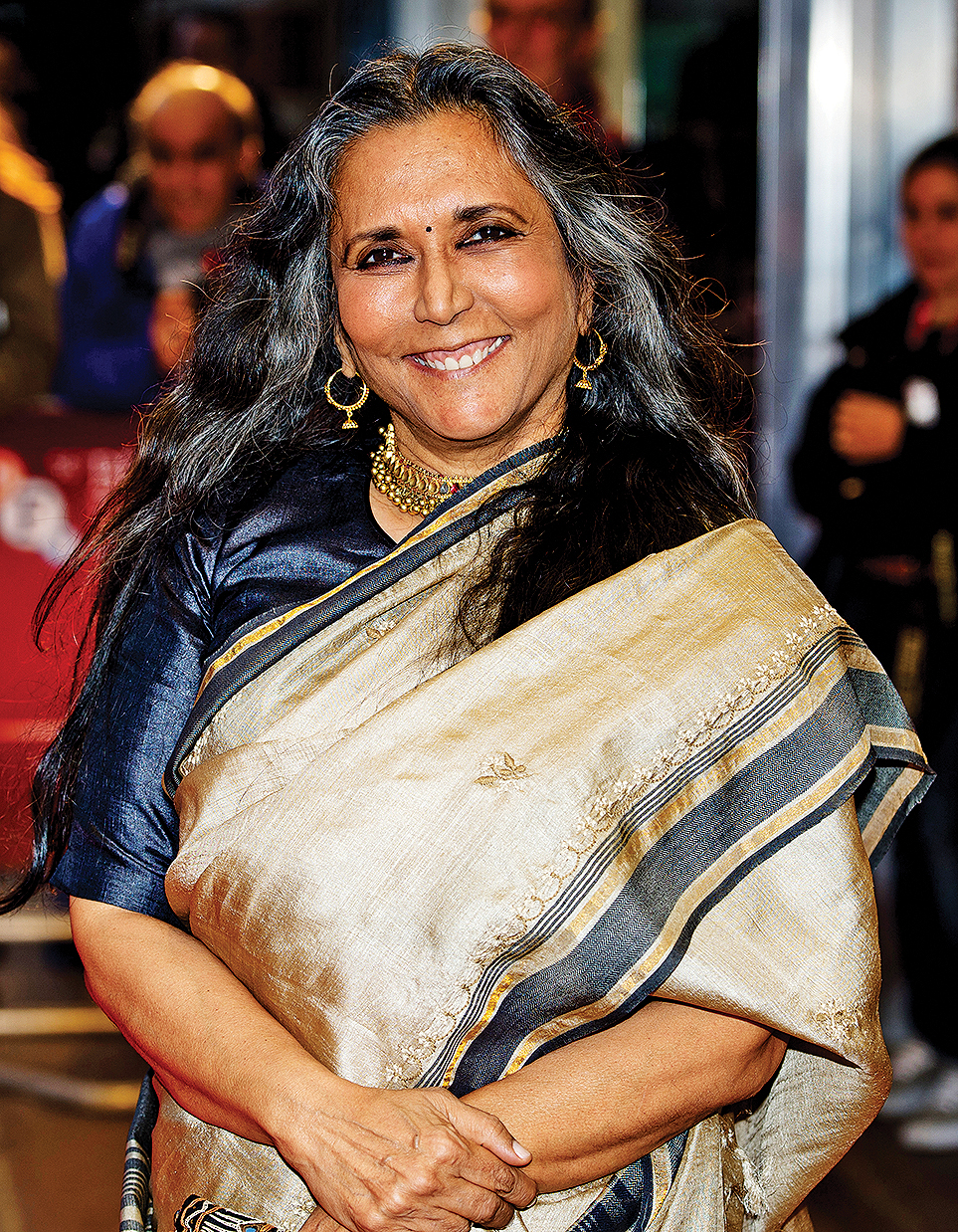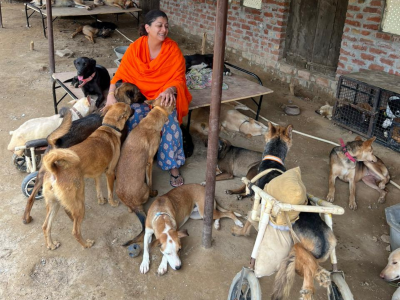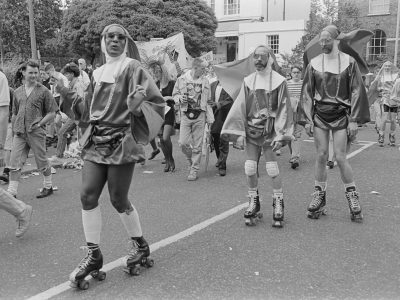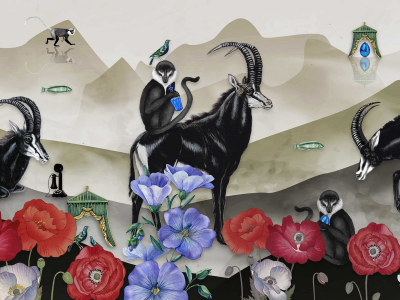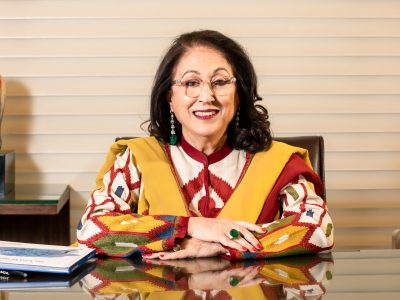Newslaundry editor-in-chief Madhu Trehan chats with Deepa Mehta, the creative executive producer and co-director of the upcoming Netflix series Leila, based on Prayaag Akbar’s dystopian novel of the same name
The Leila co-director talks about movies that influence her and how this is her first time directing something she hasn’t written:
Let’s start with how is directing a Netflix series different from filmmaking. How is it different in terms of approach, treatment?
I have written all my own scripts, always. Suddenly I was given source material written by somebody else (Urmi Juvekar). And then you look at the scripts and you say: I don’t think I would have approached the scene this way. I was lucky that both Netflix and Urmi asked how would you like to see it. So, the staging of scenes became rather different than I would have had them originally.
The reason I agreed to do it was they actually made me the creative producer of the series which meant that I could respond to the scripts, choose the actors that I wanted to as well as have the creative control over the whole series. Otherwise it would have been very difficult.
When you saw the treatment, do you think it reflected what Prayaag Akbar’s book tried to communicate?
I think it’s different when you do films based on books as supposed to when you do a series. It’s about fertility, it’s about the subjugation of women. If you are privileged, if you are entitled and if that taken away from you, what’s your journey in a dystopic world? How do you find yourself, what are the obstacles that you come through and what happens when you are left with nothing — how does one retain one’s human dignity. For me, that was my reading of Prayaag’s book. And that is what’s very true in the series.
Also, there is this addressing of class differences. In some sense it’s a bit French Revolution, in the sense that the rich have to pay for being rich.
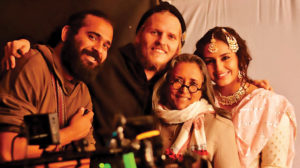
Absolutely. I think because they have been through the middle-class syndrome. Shalini has lived through that. It’s a Eureka moment when everything you are entitled to, everything you are privileged about is taken away from you — how is she going to react? I love that journey because she loses it till she finds it. And that is the critical point of a film, or a series.
Also, in the episodes that I have seen so far, one element that does come up is what happened in the Soviet Union before it collapsed. People were spying on each other, reporting on each other, children reporting parents, siblings.
I see it happening all the time, I mean I feel since Trump came into power it’s like someone’s opening a Pandora’s box and everything is accessible and nothing is bad enough to survive. You actually betray your own people. We see it happening everywhere in the world and I think that’s the tragedy and that’s why Leila is so relevant because the price we pay for that is enormous. Shalini finally manages to stand on her own feet, it’s not just a search for a daughter, a child. I don’t want to give away the plot but she does things that are very human and that shame us. And that is character building. That’s complexity. She is not a Santa Claus right from the beginning. And then neither she is a bechari which would have been so boring. She has layers to her. And there is so much she will do and then she won’t. And it is lovely.
Those are the choices particularly in India, in China, in Turkey… and those are the choices everyday where you have to make a choice. What happens to my family who have not signed up for it? Leila addresses that also in terms of the choices that are coming up all the time for these women to make.
You are right, Madhu. And not only do they come up, they come up with great immediacy. You know when you think you just made a choice, another one will come, and it’s exhausting. And it’s relentless. You know the choices we have been asked to make and maybe we are asked to make them all the time. I mean when you think of what happened with Khashoggi in Turkey, The guy goes to get a visa and he is gone.
Do you see, when you live in Canada and you come into India and there is this connection and disconnection. Indians who live in other countries, I want to ask you about it: There seems to be an unwillingness to let go of India. There’s always a part of India that stays with you. You with your films, others with their books — even business people will find excuses to come back to do some kind of work in India whether it is philanthropy. What is it about India that doesn’t let go?
For me, I think it’s my family. If my family had all migrated to Canada and nobody was left in Delhi, perhaps it might have been different. The connection for me and India is actually my mother, brother, my nieces, my nephews, my cousins who all happen to live in Delhi. And there must have been something. Even, you know, after my films have been shut down and my effigies had been burnt, I mean: Am I a sucker for punishment? I still think very often that I am an Indo-Canadian and never think of myself as a Canadian. There is always the Indo before the Canadian. I love being the Canadian, but there is that feeling of roots or it’s family — it’s not nostalgia.
When you started to shoot Water for the first time and the experience you had in Banaras — would you compare it to what Leila actually goes through? Isn’t that kind of what you went through when you were trying to start shooting?
Yes and no. That wasn’t the reason that I said okay and agreed to direct Leila. I have done a lot of other films that I drew more on. I drew more on films that have influenced me, much more than films I have done.
Which films are those?
A film called Cold War, which is Polanski’s film which is set in Poland just after the second world war. It’s a love story but it’s about the desire of a couple who are so much in love but can never actually be together. It’s a very powerful film in black & white, stunning cinematography and he is a really good director. It’s that they are not together but they always will be together.
So perhaps that’s what has some kind of resonance for me —maybe that’s my relationship with India. I mean I will never be together but I will always be together. And that’s what I felt about Leila when I was doing it: That it’s familiar and yet it’s not, which is the best place for a director.
So, I am not completely immersed in it and I have a certain amount of objectivity and yet it’s familiar so I don’t feel I am approaching it as a white person or as an NRI. But on an emotional level.
Other films which influenced you?
One that I saw right now which I thought was fantastic, called Eighth Grade. It’s very funny and it’s about a little kid and it reminded me about how universal human spirit is. It’s set in the US. It has nothing to do with India or Canada but it’s the human spirit.
At a very young age, we are all so similar. There was a line Bapsi Sidhwa wrote in Earth 1947: Icecandyman, played by Aamir Khan, says to Shanta, a woman that he loves: We all have an animal within us, and we are on earth because we have to contain that animal but the minute we let go, it’s just waiting to pounce. And I think that is what is happening in the world right now. We have actually let it go.

